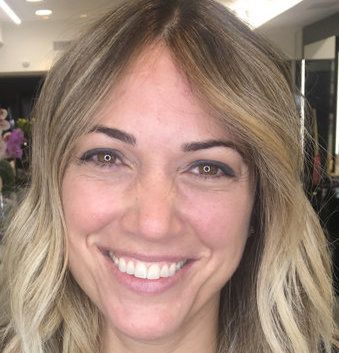Article
Study Reports High Tolerance of COVID-19 Vaccine in Patients with Allergies
Author(s):
Investigators report that the small number of adverse events from the vaccine were successfully treated, with the remaining participants experiencing no allergic responses.
Ramit Maoz-Segal, MD

An investigation into allergic reactions from the Pfizer-BioNTech (BNT162b2) COVID-19 vaccine suggested that most patients with allergic diseases could be safely immunized by using an algorithm that incorporated a referral center, a risk assessment questionnaire, and a setting for immunization under medical supervision of highly allergic patients.
In the clinical trials of the BNT162b2 COVID-19 vaccine, participants with a history of allergic reaction to any component of the vaccine or any other vaccine were excluded.
Though rare, allergic reactions to the BNT162b2 were recorded, with the anaphylaxis rate reported to be 4.7 cases per 1 million doses.
To combat uncertainty, the Centers for Disease Control and Prevention (CDC) published safety recommendations of the vaccines for patients with allergic reactions.
The investigators, led by Ronen Shavit, MD, Sheba Medical Center, Ramat Gan, Israel, detailed their experience in the assessment and immunization of highly allergic individuals, as well as the rate of adverse reactions to the BNT162b2 in that population.
The Study
Initially, the Sheba Medical Center created the COVID-19 vaccine referral center, an information center for recipients and health care workers that received applications for vaccination by phone or email.
For approximately 8 weeks, 8102 patients were monitored for the study.
Trained personnel were tasked with defining patients as low risk vs high risk for allergies or with contraindication to be immunized according to the Israel Ministry of Health (MOH) and the CDC.
Patients with low risk were recommended immunization in regular settings with 30 minutes of post-immunization observation. Patients who were not clearly at low risk were required to complete a detailed questionnaire and referred for further assessment.
Patients were considered high risk if 1 of the following was present: prior anaphylactic reaction, multiple drug allergies, multiple allergies, or mast cell disorders.
Second doses of the vaccine were provided in the same setting. Afterward, patients were asked to complete an adverse reactions form regarding the 21 days after the first dose.
The Results
Of the total number of participants in the study, 6883 (85%) were recommended to receive immunization in a regular setting
The remaining 1219 participants (15%) completed a questionnaire and were referred for assessment, which resulted in 785 individuals being defined as low risk and referred for standard immunization in a regular setting.
Only 9 female participants (2.1%) experienced early allergic reactions.
Anaphylaxis was documented in 3 (0.7%) patients, who were treated with adrenaline, antihistamines, and an inhaled bronchodilator.
Nonallergic adverse events occurred in 10 (2.3%) patients, but most vaccinated highly allergic individuals did not develop any immediate adverse events.
As of February 22, 2021, 218 highly allergic patients received the second BNT162b2 vaccine dose, with 214 (98.2%) experienced no allergic reactions and 4 patients (1.8%) experiencing minor allergic reactions.
Though precise risk factors for allergic reactions to the BNT162b2 vaccine were not revealed, most patients in the study were safely immunized, with all allergic and anaphylactic reactions treated successfully.
“Furthermore, most high-risk patients who did not experience any adverse events from the first dose also did not exhibit a reaction to the second dose,” the investigators wrote. “This finding may suggest that a shortened observation period may be sufficient after the second dose of the vaccine for patients who did not experience a reaction to the first dose.”
The study, “Prevalence of Allergic Reactions After Pfizer-BioNTech COVID-19 Vaccination Among Adults with High Allergy Risk,” was published online in JAMA Open Network.





